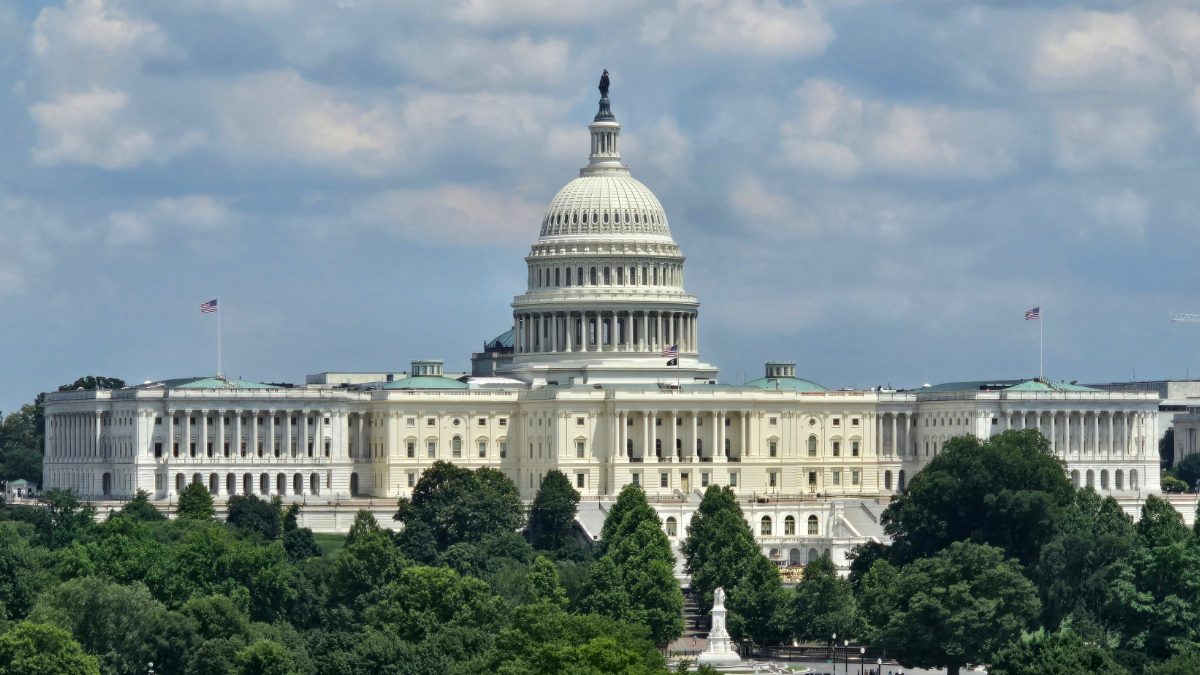The End of Chevron Deference Risks Stifling AI Regulation – Here’s How Congress Can Respond
Archer Amon / Jul 26, 2024
June 13, 2024 - The United States Capitol. Justin Hendrix/Tech Policy Press
With the Supreme Court’s ruling in Loper Bright Enterprises v. Raimondo overturning the longstanding “Chevron deference” doctrine, which required courts to defer to expert agency opinions when interpreting ambiguities in statutory law, many have either celebrated or lamented “the death of the regulatory state.”
This ruling is expected to bring significant changes in areas such as environmental, health, and energy policy. It will encourage legal challenges to the actions of agencies with broadly defined authority and leave courts to analyze highly technical specifics in areas where they may lack the expertise.
But for AI – a still emerging regulatory field with a complex landscape of new governance actors, the impacts are less clear. When presenting oral arguments for the case in January, Justice Kagan (who dissented with the Court’s decision) repeatedly referenced AI as precisely the type of issue courts would struggle to handle without agency expertise: “We don't even know what the questions are about AI, let alone the answers to them.”
Not only is AI a highly technical and rapidly evolving field, but it also faces a regulatory framework still largely under development. Close to 100 pieces of AI legislation have been introduced in Congress this session, but none have passed yet, leaving federal agencies acting under pre-delegated authority as the leading figures providing interim governance in the meantime. This puts AI regulatory efforts in an interesting spot — On one hand, the loss of Chevron will matter less than in other areas where decades of agency action have relied on the doctrine. On the other hand, the ruling may call into question some AI actions in progress or produce a chilling effect among federal agencies, leading them to act more cautiously and creating a policy vacuum during some of the technology’s most critical times.
AI presents another unique challenge. While the Chevron deference over time shifted from a conservative tool to enable deregulation to a backbone of the administrative state, the line between the regulators and the regulated in past areas was more clear-cut. Regulatory capture has historically been a recurring problem across many industries, but we don’t see oil and gas CEOs calling for climate policy in the same way that AI leaders have directly encouraged AI regulation.
This relationship creates potential for government and industry consensus around some proposals, but it also presents a heightened risk of regulatory capture, particularly after a decision like Loper Bright, where both Congress and Federal agencies are still grappling with how to interpret and apply it. To ensure AI governance succeeds in a post-Chevron world, Congress will need to expand its technical capability and learn how to craft thoughtful legislative text when delegating its authority.
It’s important to remember that under Loper Bright, Congress can still defer power to agencies. However, courts will no longer defer broadly to the expert agency opinion when the statutory law authorizing this delegation is ambiguous. Courts will now be required to evaluate whether a regulatory action is more directly in line with the text of the law. This may involve highly technical determinations of what kinds of technologies a law covers.
In practice, this means many loosely defined terms like “AI,” “foundation models,” “high-risk” uses, and “autonomous systems” may be left up to judicial interpretation if not expressed clearly in the original laws. Of course, Congress may not need to specify every technical detail themselves, as they can still delegate some interpretive authority to agencies. However, they must be clear about what responsibilities and decisions are being delegated.
More explicit delegation will require Congress to be more mindful in crafting bills, understanding what should be delegated, and the best language to achieve this goal while minimizing ambiguity elsewhere. To this end, Congress should meaningfully expand its ability to understand and craft well-informed legislation on new technologies (already a necessary task, but one particularly critical in a post-Chevronlandscape). Several proposed recommendations to advance this goal are to:
- Expand congressional staff resources, which continually declined in the years after Chevron’s original ruling. A 2024 survey from the Congressional Management Foundation shows only 7% of senior staff are fully satisfied with the time and resources given to Congress to understand and deliberate policy. One option is to place more technologists within Congressional office positions, a goal supported by some nonpartisan organizations such as TechCongress. Another option could be to include committee-specialized staff who work on a general issue rather than for a single congressperson, helping to facilitate relevant talks, dissemination of information, and policy action. Experts could funnel information through committee heads, producing a more coordinated response than extra personnel on individual member teams can.
- Improve the quality of data Congress has access to by bolstering the Congressional Research Service (CRS) and establishing data-sharing partnerships between Congress and Federal Agencies. In recent years, the CRS has failed to fulfill some of its explicit functions in providing research reports, and less than a third of congressional staff from the aforementioned survey report being satisfied with their access to quality, nonpartisan expertise. Congress can also establish better lines of communication for requesting data from executive agencies, allowing them to function as a truly effective partner in implementing new laws.
- Consider reopening the Office of Technology Assessment to strengthen Congress's ability to understand and make decisions about new technologies. With several groups and task forces either being created or proposed to expand government focus on AI, a similar measure may also be able to fill its place. A specific subgroup or project focused on enhancing Congress’s technical capacity could be particularly useful, especially with clear attention devoted to legal issues.
With each of these efforts comes risk, for some reflecting the fear that Loper Bright would take power out of the hands of unelected bureaucrats and into the hands of unelected staffers and lobbyists in drafting preliminary bills. But it doesn’t have to be this way. Whether through hearings, staffing choices, research groups, or other means, Congress can ensure that this expertise comes from a diverse pool of voices, including industry leaders, nonprofit groups, research institutions, ethicists, scientists, and ordinary citizens.
These groups can also take action themselves. Researchers can make information on AI, its risks, and proposed solutions more understandable and encourage its dissemination to lawmakers. Public watch groups and journalists can pay close attention to this shifting landscape of power and ensure it is brought to light. If congressional research group meetings and judicial training sessions now matter more than agency expertise in a post-Chevron world, it is crucial that they be conducted transparently and scrutinized closely.
Congress can additionally look to the model set by many federal agencies, such as the FTC, FCC, and NIST, in opening channels for public comment on specific questions of technology regulation, where clear requests for information and expertise can function far more effectively than Senators’ often flooded phone and email lines.
Agencies, too, have their work cut out for them in adapting to a post-Chevron world and preparing for possible legal challenges. Many non-legislative actions, such as FTC settlements on data privacy issues, will continue to play a crucial role in guiding AI policy while Congress debates legislative approaches.
The reversal of Chevron deference will mark a pivotal moment in American legal history, bringing both challenges and opportunities as lawmakers continue to grapple with new technological developments. To navigate this new landscape, Congress must expand its technical capabilities, craft well-informed and explicit legislation, and draw on a diverse pool of expertise to avoid regulatory capture and ensure effective technology governance.
Authors
